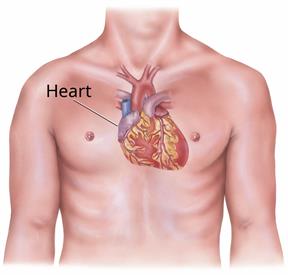Heart Failure: What to Know

Heart failure means that your heart isn't able to pump blood the way it should. The heart might not be able to pump enough blood and oxygen to your body tissues.
Heart failure is usually a long-term condition. Be sure to take good care of yourself and follow your treatment plan.
Different stages of heart failure have different treatment plans. The stages are:
- Stage A: At risk for heart failure.
- Stage B: Pre-heart failure.
- Stage C: Symptomatic heart failure.
- Stage D: Advanced heart failure.
What are the causes?
Heart failure may be caused by:
High blood pressure.
Coronary artery disease. This is when cholesterol and fat build up in the arteries.
Heart attack.
Heart valves that don't open and close properly.
Damage to the heart muscle.
An infection of the heart muscle.
Lung disease.
What increases the risk?
-
Getting older. The risk of heart failure goes up as a person ages.
-
Using tobacco or nicotine products.
-
Being overweight.
-
Using alcohol or drugs.
- Having any of these conditions:
Diabetes.
Abnormal heart rhythms.
Thyroid problems.
Chronic kidney disease.
-
Having a family history of heart failure.
-
Having taken medicines that can damage the heart.
What are the signs or symptoms?
Symptoms of heart failure include:
Shortness of breath. This may happen when doing things like climbing stairs.
A cough that doesn't go away.
Swelling of the feet, ankles, legs, or belly. This is called edema.
Losing or gaining weight for no reason.
Trouble breathing when lying flat.
A fast heartbeat.
Other symptoms may include:
Feeling tired and not having energy.
Feeling dizzy or light-headed. You may feel like you're going to faint.
Not wanting to eat as much as normal.
Feeling like you may vomit.
Feeling confused.
How is this diagnosed?
Heart failure may be diagnosed based on:
How is this treated?

Heart failure may be treated with:
Follow these instructions at home:
-
Treat other conditions as told by your health care provider. These may include high blood pressure or lung disease.
-
Learn as much as you can about heart failure.
-
Keep all follow-up visits. Your provider will want to check on your condition.
This information is not intended to replace advice given to you by your health care provider. Make sure you discuss any questions you have with your health care provider.

 Heart failure may be treated with:
Heart failure may be treated with: